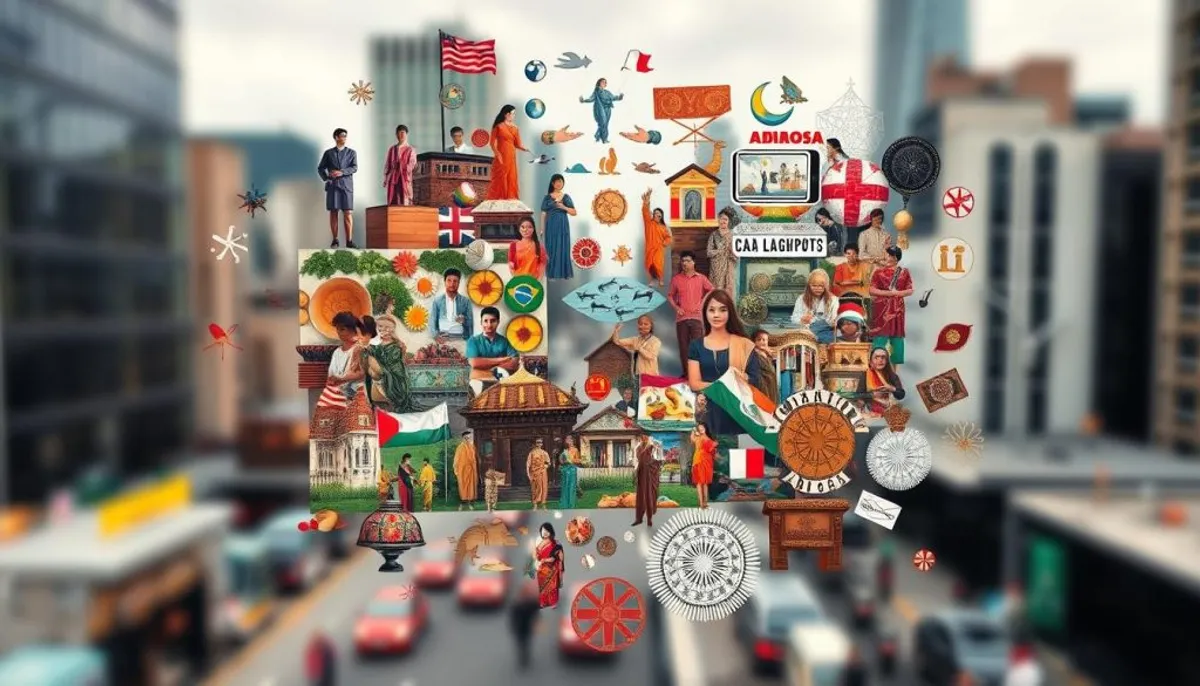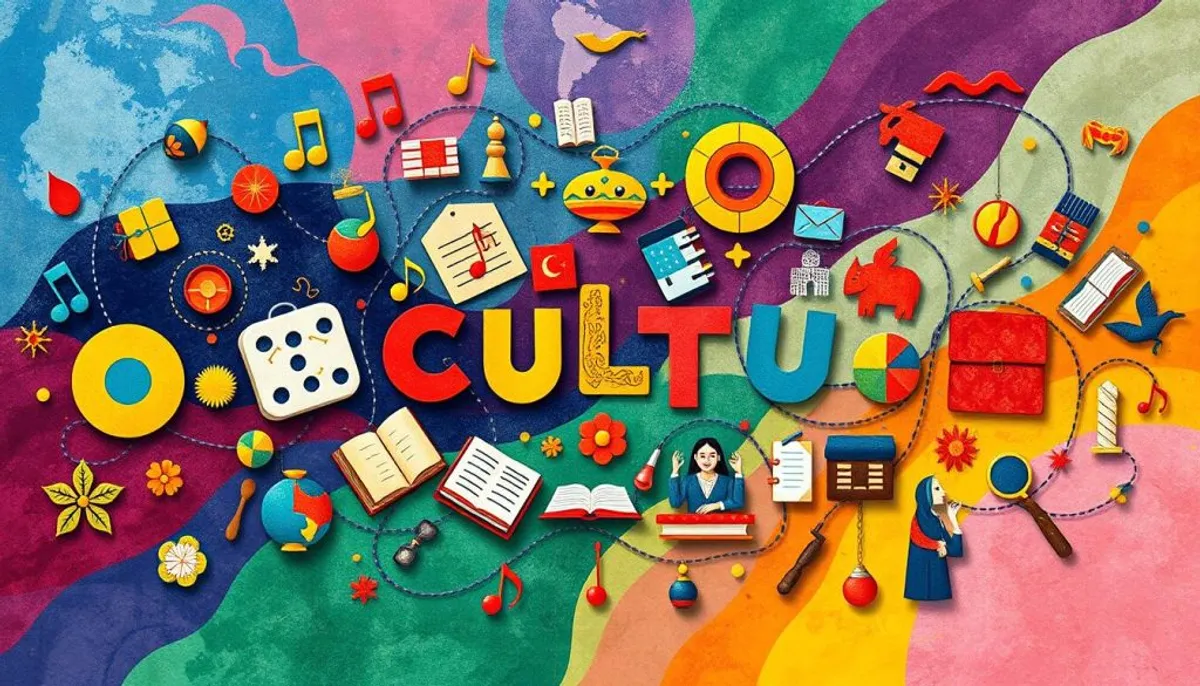Guy Rocher, a renowned sociologist at the University of Montreal, revolutionized sociology with his definition of culture. His work “Culture, Civilization, and Ideology,” published in 1995, offers a unique perspective on this concept. This innovative approach has profoundly marked the field.
According to Rocher, culture is a set of ways of thinking, feeling, and acting. These practices, more or less formalized, are learned and shared by a group. They are essential to the formation of a distinct community.

Rocher's sociological approach highlights the importance of the objective and symbolic aspects of culture. It examines how these elements shape collective identities. This perspective provides a valuable framework for understanding social and cultural dynamics.
Rocher's definition is part of a rich sociological tradition. It reflects the evolution of the concept of culture since the 18th century. His work continues to influence research in sociology and cultural anthropology.
The Historical Evolution of the Concept of Culture According to Rocher
The history of the concept of culture is deeply complex. Guy Rocher, a renowned Quebec sociologist, explores its evolution. He traces this history from its early appearances in Germany in the 18th century. Rocher shows how it integrated into cultural anthropology and sociology of culture.
The German Origins of the Concept in the 18th Century
The concept of culture finds its earliest roots in Germany in the 18th century. This period marks a profound reflection on culture. It deeply influences European thought. German intellectuals begin to see culture as a reflection of collective identity.
The Influence of Universal History
Universal history plays an essential role in the evolution of culture. Historians like Johann Christoph Adelung contributed to its expansion. They integrated culture into a broader perspective, covering various human expressions across time and space.
The Transition to Anthropology and Sociology
The concept of culture gradually integrates into cultural anthropology and sociology. This transition enriches its understanding, allowing for a more detailed analysis of social and cultural phenomena. Rocher emphasizes the importance of this evolution for understanding human societies.
| Period | Field | Contribution to the Concept of Culture |
|---|---|---|
| 18th Century | German Thought | Initial Definition of the Concept |
| 19th Century | Universal History | Broadening of Perspective |
| 20th Century | Anthropology and Sociology | Integration and Deepening of the Concept |
What is Culture According to Guy Rocher
Guy Rocher, a renowned Quebec sociologist, defines culture as the foundations of social life. His work, the result of decades of research, sheds light on the thought and action mechanisms that shape our daily lives.
A Related Set of Ways of Thinking, Feeling, and Acting
According to Rocher, culture is a system of collective dispositions. It encompasses our ways of thinking, our emotions, and our behaviors. This definition highlights the interdependence between our thoughts, feelings, and actions, forming our cultural identity.

Learned and Collectively Shared Dispositions
A key point in Rocher's definition is that culture is acquired and collective. These dispositions are not innate but learned within a group. They are shared by multiple individuals, creating a common identity. This perspective is supported by longitudinal studies, such as one conducted with 20,000 Quebec youth in 1971 regarding their educational and professional aspirations.
The Objective and Symbolic Dimension of Culture
Rocher emphasizes the dual nature of culture. It manifests objectively through observable behaviors. It also possesses a symbolic dimension, including the meanings and values of a society. This perspective helps to understand the influence of cultural symbolism on our thoughts and actions in daily life.
The Fundamental Characteristics of Culture
Culture, in its diversity, manifests through multiple aspects. Cultural elements encompass formal practices such as laws, as well as more informal customs. This variety creates a richness of cultural expressions unique to each society.
Cultural characteristics play a unifying role within a group. They forge a common identity while distinguishing one community from another. This phenomenon explains the cultural diversity observed around the world.

Aspects of culture shape our perception of the world. They assign particular meanings to our actions and thoughts, forming a structured frame of reference. This frame guides our behaviors and influences our daily choices, including our appreciation of traditional cuisine.
It is interesting to note the evolution of cultural practices in France. Between 2008 and 2018, certain activities saw a significant increase:
- Attendance at museums, exhibitions, and historical monuments rose from 37% to 44%
- Cinema saw its popularity increase from 57% to 63%
- Video games gained followers, rising from 36% to 44%
These figures illustrate changes in the cultural habits of the French, reflecting the ongoing evolution of cultural elements over time.
| Cultural Activity | 2008 | 2018 |
|---|---|---|
| Museum/Exhibition Visits | 37% | 44% |
| Cinema | 57% | 63% |
| Video Games | 36% | 44% |
The Social and Psychological Functions of Culture
Culture is crucial in the formation of societies and the development of individuals. Guy Rocher emphasizes its impact on social integration, collective identity, and psychological development. These aspects are profoundly influenced by culture.
The Role of Social Integration
Culture serves as a powerful vehicle for social integration. It offers a common framework of references, values, and norms. This framework facilitates interactions within a society. It allows individuals to understand each other and cooperate effectively.
The Function of Collective Identity
Collective identity is forged through shared culture. It creates a sense of belonging and solidarity. This feeling strengthens social cohesion and contributes to the stability of groups.
The Impact on Individual Psychological Development
Culture profoundly influences the psychological development of individuals. It shapes perceptions, values, and behaviors from a young age. This cultural shock is a process of socialization through culture that is crucial for personality formation.
| Function | Social Impact | Individual Impact |
|---|---|---|
| Social Integration | Group Cohesion | Social Adaptation |
| Collective Identity | Community Solidarity | Sense of Belonging |
| Psychological Development | Transmission of Values | Personality Formation |
The functions of culture, as highlighted by Rocher, underscore its fundamental importance. It acts as a link between society and the individual. It shapes both collective structures and personal experiences.
Conclusion
The sociology of Guy Rocher reveals the crucial importance of culture in our society. His analysis highlights the profound sociological impact of cultural practices. These practices shape both collective and individual identities. Rocher's work demonstrates the dynamics and complexity of culture, essential for understanding today’s social phenomena.
Rocher's cultural perspectives continue to influence sociological research. They allow us to grasp the complex interactions between social representations, economic conditions, and political structures. This view of culture as a set of ways of thinking, feeling, and acting, shared collectively, remains relevant for analyzing current social dynamics.
Guy Rocher's conception of culture invites us to reflect on its central role. It emphasizes its importance in social integration, the formation of collective identities, and individual psychological development. According to Rocher, culture is not a fixed concept but a living process, constantly evolving, influencing and being influenced by the globalized world.
RelatedRelated articles


